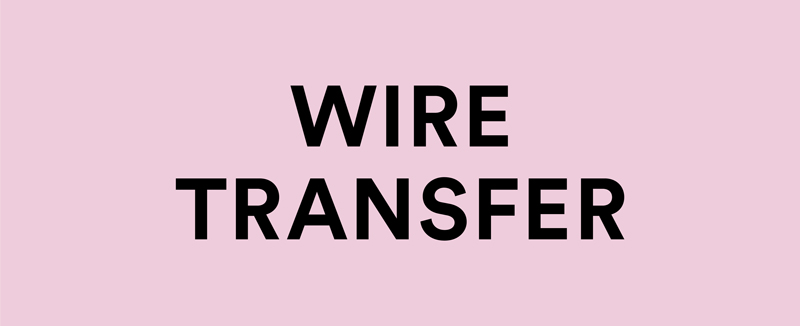Articles with tag:
Body
(11 results)
Ulay (1943-2020) / The most unknown among renowned artists
Frank Uwe Laysiepen, the German artist known as Ulay, died on March 2, just a few months before a major retrospective of his work, scheduled for November 2020, at the Stedelijk Museum in Amsterdam. He was born in 1943, in Sollingen, Germany, during World War II, but his personal and artistic journey really began in 1969, in Amsterdam (his adopted city) to which he was drawn by the constructive anarchist Provost movement. From Amsterdam, Ulay’s journey took him to Paris, Rome, Berlin, London, and then widened to include New York, Morocco, India, Nepal, the Middle East, China, Australia, and Patagonia. It ended in Ljubljana, Slovenia, where he married Lena Pislak and resided in the years before his death. It is now up to us to rediscover his work: polyhedral, beyond category, non-commercial and uncompromisingly radical. Ulay was a pioneer of Polaroid photography and of performative photography, a prominent figure among European Performance Art and Body Art of the 70s, and an early advocate for ecological militancy through art. His work challenged at their root all concepts of stable identity —national, sexual, political. Yet, even among "insiders", he is known almost...
Photography and life: an interview to Letizia Battaglia
I had wanted to meet Letizia Battaglia for some time, but I hadn’t found the guts to write her yet. I had always considered that like one of those appointments you keep on postponing to keep your hope alive, the hope that it wouldn’t end in the very moment it happend. However, something suggested me that I couldn’t interview her without visiting her city first. So I went to Palermo with my sister and we stayed for a few days. I tried to catch the secrets of that place, to tune up with what surrounded me: the road sounds, the smells, the markets, the suburbs, the places of the dead portraied by Letizia. Palermo is weird. You find yourself shrouded in a grip of contradictions, it is both a cradle and a grave, sea and asphalt, beauty and death. The city gives something new to your eyes, a dump veil stuck on your skin, just like the voices heard down the streets. I absorb every single thing. I don’t wanna miss a thing, I do want to understand every sign passing by. I cannot let go. So I take my decision: I tear off the interview I prepared before my departure after reading books and watching pictures on catalogues. They do not make sense any longer. I rewrite all the questions at...
Asmarina: post colonial heritages
Italian Version Asmarina, a 2015 documentary by Alan Maglio and Medhin Paolos, follows what they call “voices and images of a postcolonial heritage.” This beautiful documentary (with an absolutely riveting soundtrack) tells the story of Milan’s habesha community, integral to the Porta Venezia neighborhood since the mid-twentieth century. Weaving together the experiences and identities of those who have lived in Italy for generations with those of newly arrived refugees, Asmarina traces the complex networks of colonial legacies, transnational migrations, family ties, and diasporic politics. And through these stories, which can only be understood from a spatially extended and transhistorical perspective, it also forces a serious reconsideration of what we mean when we talk about “Italy” and “Italians.” Still from Asmarina (2015). Diasporic photography Asmarina begins with a montage of photographs: a hand gently moving a magnifying glass over photo slides on a light table; an aging, black-and-white photo; a well-worn family album; crisp pages from the 1983 work of photojournalism Stranieri a Milano. Pictures are laid out on a table, ejected from a printer,...
Compassion: Between Tenderness and Cruelty
There are so many things to say about compassion that one could fill a book or an encyclopedia. A partial list of areas to cover would include: commiseration, piety, love, understanding, sharing, empathy, sympathy, antipathy, intropathy, bliss and clemency. Compassion is what we feel reading about Hector and his wife Andromache, or the dream about the twenty geese that Penelope tells the disguised ‘beggar’ who is really her husband, Odysseus. It is the condition Aristotle refers to in his ‘Poetics’ when he uses the term ‘catharsis’. It is also the virtue embodied by Aeneas as he slings his old father Anchises and his son Ascanius to on his back and carries them out of burning Troy to safety. Or again, when Eros disobeys his mother and falls in love with Psyche. And so on, throughout history, examples of compassion abound, in Romantic literature and then on to the scandal caused by the controversy between Nietzsche and Wagner regarding Schopenhauer. Compassion does not necessarily have the same connotations today as it did in the past. We are not even sure whether the words we use to describe the sentiment correspond to what each of us feels today. The term ‘compassion’ has...
Guantánamo and the New Concentration Camps
After the terrorist attack on the Parisian satirical magazine, Charlie Hebdo, some commentators wondered what the consequences of a reaction calling for greater security would be for European legislation. The almost hysterical use of the inclusive “we” in the slogans following the attack (Nous sommes Charlie) provide a linguistic clue to the identity politics in play, just as the 9/11 attacks fueled the rhetoric of a “clash of civilizations”. The reaction to both has been a justification for police interventions on an international scale and so-called ‘surgical’ warfare. The Italian philosopher, Giorgio Agamben, in an interview in La Repubblica (Jan 15, 2015), invited readers to “stay lucid” and not repeat the mistakes of the past. “The overlapping of the concepts of terrorism and warfare after 9/11 led Bush to wage a war […] that cost tens of thousands of lives. Without that war, the tragic attack France is now reeling from may never have taken place.” Agamben foresaw a slippery slope towards “what politologists call a ‘Security State’, that is a state where a true political presence simply cannot survive.” The book Guantánamo Diary was published in January 2015 in the...
When Freelancing is Female
The debate over the role of women in the labor market has entered the social, academic and political arena through various channels. I can’t say for sure whether society has already entered a post-patriarchal era or not, but it is undeniable that women play an essential role in both biological and economic developments today. I would like to frame the issue by taking into account the fact that precarious short-term contracts have been one of the strongest markers of gender – and gender discrimination - in the past decades. Since I argue that the concept of gender is socially and historically constructed, it is clear that the condition of being hired on a short-term contract is responsible for much of what we see as the condition of women in the workplace. This does not altogether rule out the transformative potential of “becoming” a woman indicated by Gilles Deleuze. Doing so would imply an inclination towards deconstruction, which would anyway save women from the mechanisms of subjugation that are implicit in a short-term, precarious identity. Reputation and contemporary protheses A great deal of feminist writing - in particular, on gender differences – has tended to...
Why Africa? Changing the Narrative of the World
Why Africa? For many years lettera27 has been dedicated to exploring various issues and debates around the African continent and with this new editorial column we would like to open a dialogue with cultural protagonists who deal with Africa. This will be the place to express opinions, tell their stories, stimulate the critical debate and suggest ideas to subvert multiple stereotypes surrounding this immense continent. With this new column we would like to open new perspectives: geographical, cultural, sociological. We would like the column to be a stimulus to learn, re-think, be inspired and share knowledge. For the opening piece we asked our partners, intellectuals and like-minded cultural protagonists from all over the world to answer one key question, which also happens to be the name of the column: "Why Africa?". We left the question deliberately open, inviting each of the contributors to give us their perspective on this topic from their own context. This first piece is a collection of some of the answers we received, which aims to open the conversation, pose more questions and hopefully find new answers. Elena Korzhenevich, lettera27 Here the column's introduction...
Why Africa? Companions of Longitude
Why Africa? For many years lettera27 has been dedicated to exploring various issues and debates around the African continent and with this new editorial column we would like to open a dialogue with cultural protagonists who deal with Africa. This will be the place to express opinions, tell their stories, stimulate the critical debate and suggest ideas to subvert multiple stereotypes surrounding this immense continent. With this new column we would like to open new perspectives: geographical, cultural, sociological. We would like the column to be a stimulus to learn, re-think, be inspired and share knowledge. For the opening piece we asked our partners, intellectuals and like-minded cultural protagonists from all over the world to answer one key question, which also happens to be the name of the column: "Why Africa?". We left the question deliberately open, inviting each of the contributors to give us their perspective on this topic from their own context. This first piece is a collection of some of the answers we received, which aims to open the conversation, pose more questions and hopefully find new answers. Elena Korzhenevich, lettera27 Here the column's introduction...
The mother of all dances
When I discovered the question, I felt tempted to parody this American actor in this ad for some coffee and to answer: what else? I am the son of Lydia and Simon, two bassa heroes. I am the result of those two beings from a people who fought forcefully for their freedom; two children of Africa. So, what else? What else than that land of shadows and ghosts waiting to be revealed? What else than those millions of stories waiting to be told? Those stories I would read for my grandfather without really understanding, but captured by the mystery of books that could contain a whole world within their pages. Wars, marvels, people, love, hatred, all translated in the subtle magic of words. Conrad did not know to which extend he was right when he called this continent the heart of darkness. He did not know what darkness was in reality and found the right words out of a misunderstanding. What do we say when we say Europe or Africa? People are always convinced to say something when they say “Africa”, which I admire, because I personally still don’t know what is Africa. I say Africa knowing that if we were looking for a definition that would perfectly define the complexity of the...
Peter Handke: The Essay Writer
In recent years, critical attention towards the Austrian novelist, playwright and political activist of Slovenian origin, Peter Handke, has focused more on his activism than on his books. In particular, he sparked controversy when he spoke out in support of the Serbian regime, during the sanguinary civil war in former Yugoslavia, and of its leader Slobodan Milošević, both during his trial in the Hague and at his funeral. Many of his most important works are out of print and there are fewer and fewer reprints scheduled, though there may be some change in the air. And yet, his work continues to be translated. Fortunately, this shows that Peter Handke still enjoys a worldwide readership despite the polemics. Donata Wenders, Peter Handke, Chaville 2009 After receiving such prestigious awards as the Kafka prize in 2008, and the Ibsen prize in 2014, Handke’s return to the public eye inevitably stirred up the controversy. Perhaps it is easier to attack Handke for his views than to analyze and comprehend the full range of motivations the writer has given for his opinions. Admittedly, his unquestioning espousal of Milošević’s doctrines is hard to digest, in particular by today’s...
A Morphology of Difformity
Increasingly these days you hear people complain that streets full of garbage reflect the incivility and bad manners of their inhabitants. Given the sheer quantity of trash at the station, in our squares, on the tram, in the metro, and in our classrooms – scrunched up sheets of newspaper, crushed cans, discarded tetrapak containers, crumpled tissues dropped after use – it would be easy to conclude that, according to this yardstick, the Italians are an extremely uncivilized population. Leaving aside the moral and educational issues linked to this depressing phenomenon, I would like to focus on the forms these discarded articles take. As soon as we try and describe the forms, it becomes clear how morphologically complex these objects are. Try and observe them. What distinguishes one crushed can from another? Or one tissue that has been thrown away after a hefty nose blow from another that has suffered the same fate? Or again, one scrunched up page of a newspaper from another that has been abandoned a little further down the road? We have no difficulty distinguishing cans from paper, or card from tissues. That is, we can easily grasp the differences between objects,...









 Since 2011
Since 2011 

